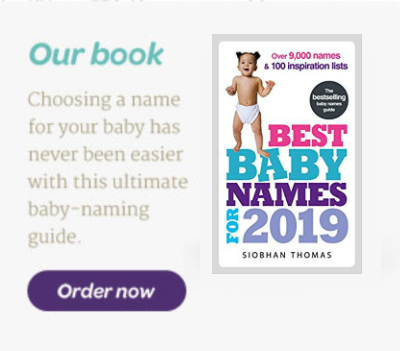This was originally posted on October 15, 2012
Back in February, only weeks after the birth of their baby, Beyoncé and Jay-Z attempted to trademark their daughter’s name. We all know how influential celebrities can be when it comes to names and trend-setting, so does this represent the beginning of a new baby name trend: trademarking?
If you trademark your baby’s name, it does not mean that other parents can’t use it for their child. What it does mean, however, is that any child with the same name may not be able to register future companies which use their personal name in the title.
The legal side
So can ordinary people like you and me trademark our child’s name? Yes, we can. Similarly to the U.S., it is legal in the U.K. to trademark a personal name. Celebrities do have more reason to trademark their baby’s name than most people, though, as it can prevent other companies from ‘free-riding’ off their child’s fame.
So what does trademarking actually do? Well, if your child is likely to grow up in the public eye, or they have a very unusual name that you want to protect from other companies using, then trademarking can help protect your child’s future. You could trademark your baby’s name in a specific category, such as baby clothing, or baby care products, and if approved, this will prevent other companies from being able to register the same name in the same category. It could also stop people from registering that website domain name.
Trademarking is a very complicated system which does not necessarily have clear-cut rules. For example, if Beyoncé and Jay-Z’s trademark application is approved, then anyone else named Blue Ivy may have trouble registering a domain name or company name which has anything to do with their personal name. This does not mean that they CANNOT do it. The court would have to decide whether that individual was trying to free-ride off of Blue Ivy Carter’s fame, or whether the individual is using the name for separate reasons. Also, if the individual’s company or domain name incited confusion over whether it was owned or endorsed by Blue Ivy Carter the ‘celebrity’, it could be rejected.
Let’s say someone wanted to register the name ‘Blue Ivy’s Nightclub’ in the future, after Beyoncé and Jay-Z’s application is approved. The court would have to look into the applicant’s reasons for using the name ‘Blue Ivy’ as well as assessing whether the applicant was trying to cause confusion or free-ride off the celebrity’s name. Finally, they would look into whether the company’s name could seem detrimental to Blue Ivy the celebrity.
Will it become a trend?
In light of this, there is really very little reason for a non-celebrity to trademark their child’s name – unless the parent is convinced their child will want to grow up to be an entrepreneur who wishes to use their personal name as a business name. Even then, the child would have to have a very unusual name for the application to be approved. The name Tom Smith, for example, is not going to be easy to trademark.
Despite this, I’m sure that this will spark a trend in celebrityville. Having her name trademarked certainly won’t harm Blue Ivy’s chance of success, and many other celebrity parents may want to follow suit. If the application is approved, it will be easy for her, or her parents, to set up a company in her name, as well as gaining protection from other companies or individuals who want to use the unique combination of names to their advantage. It may also serve to put parents off using the name for their own children, as their child may have trouble in the future registering trademarks or domain addresses in their name.
Would you consider trademarking your child’s name? Let us know!


